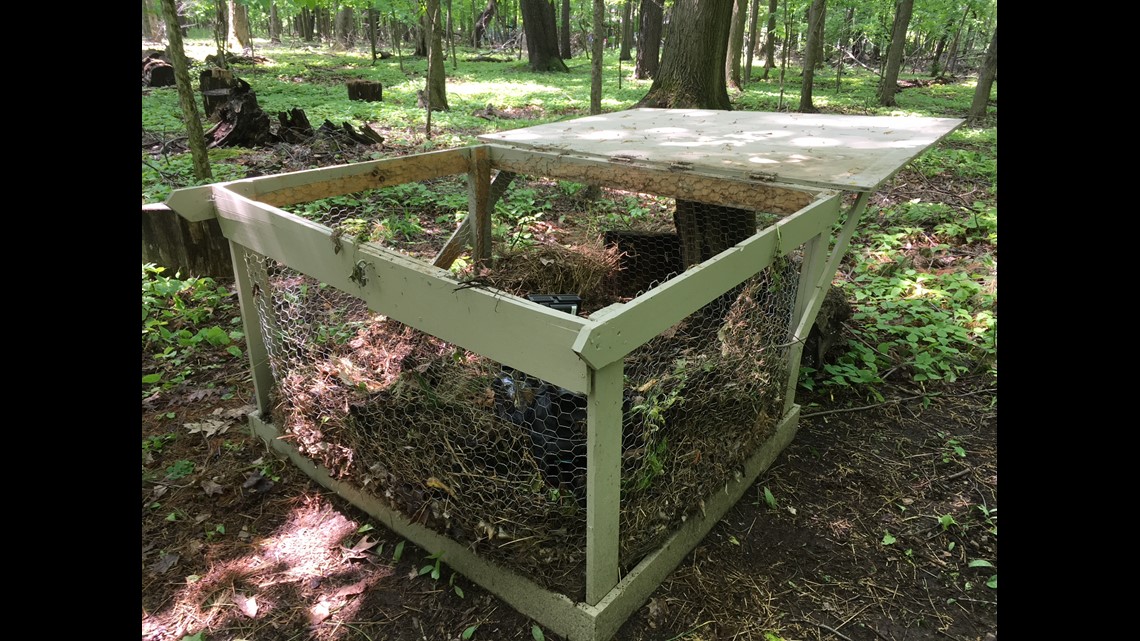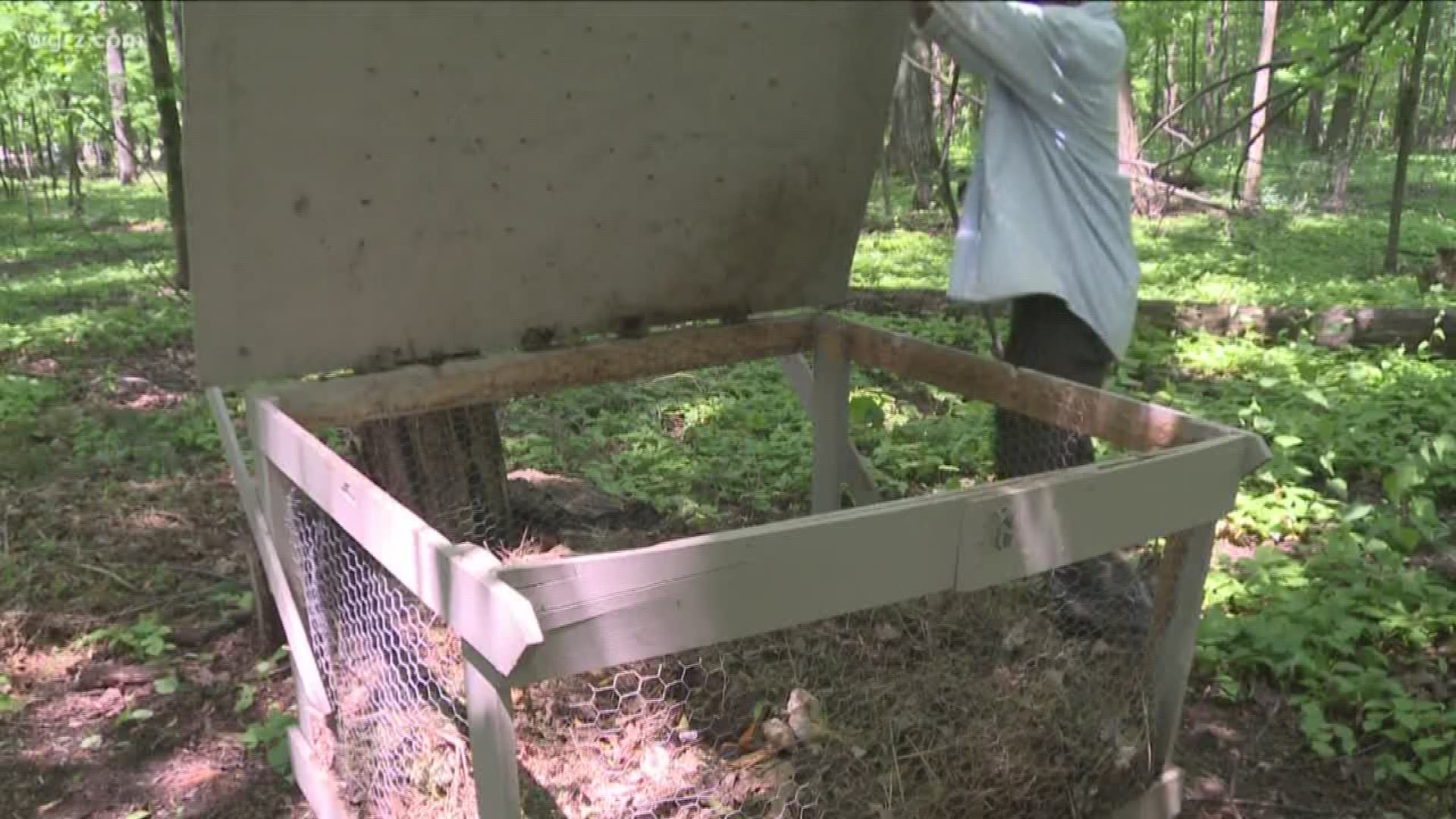JAVA NY — JAVA, N.Y. — Taking care of Mother Earth is a responsibility that falls on all of us, and despite the daunting nature of the task, there are a lot of things individuals can do to help.
Composting is an easy one that you can do right in your own backyard.
"Compost is taking scraps basically, anything organic, putting it into a pile, given the right temperature, the right microbes, it breaks it down into a usable additive to the soil, that grows plants," said Mark Carra, a naturalist in residence at Beaver Meadow Audubon Center in Java.


Carra says building an enclosure for your compost heap is very easy.
"Simple. I mean you can do it with almost anything. It doesn't take any real expertise, just some kind of material to make a circle where there's breathing involved because you need oxygen in there, getting the bottom off the ground slightly, again, to get air circulation and then layering materials," said Carra.
If you're not handy, there are a number of alternative containers available.
"There are some that are small. They have cranks on them, so you can turn it over much more easily than using physical labor to do it, and they can even work for an apartment," said Carra.
Composting is essentially mimicking nature and the creation of soil, so balance is important. The proper equilibrium of carbon, nitrogen, oxygen, and water must be struck. All of the organic material needed can be found nearby.
"Then put some soil then layering materials, grass clippings, leaves, and then using your materials from inside your house that you're going to throw away, your scraps of vegetables and such. Stay away from meat, and anything to do with meat products is a negative," said Carra.
The hardest work involved is making sure the compost is turned over periodically to oxygenate the heap and promote decomposition. It's a minimum effort for a maximum return. Compost enriches soil for gardens, and creating it also helps cut down on refuse entering landfills. The United States, with only four percent of the world's population, creates more than 30-percent of the planet's waste.
"Why not use your scraps that you were going to throw away anyway and create a better garden out of it? That's a win-win," said Carra. "Everybody has got to start thinking about the future, and we can only do that by being responsible today."

